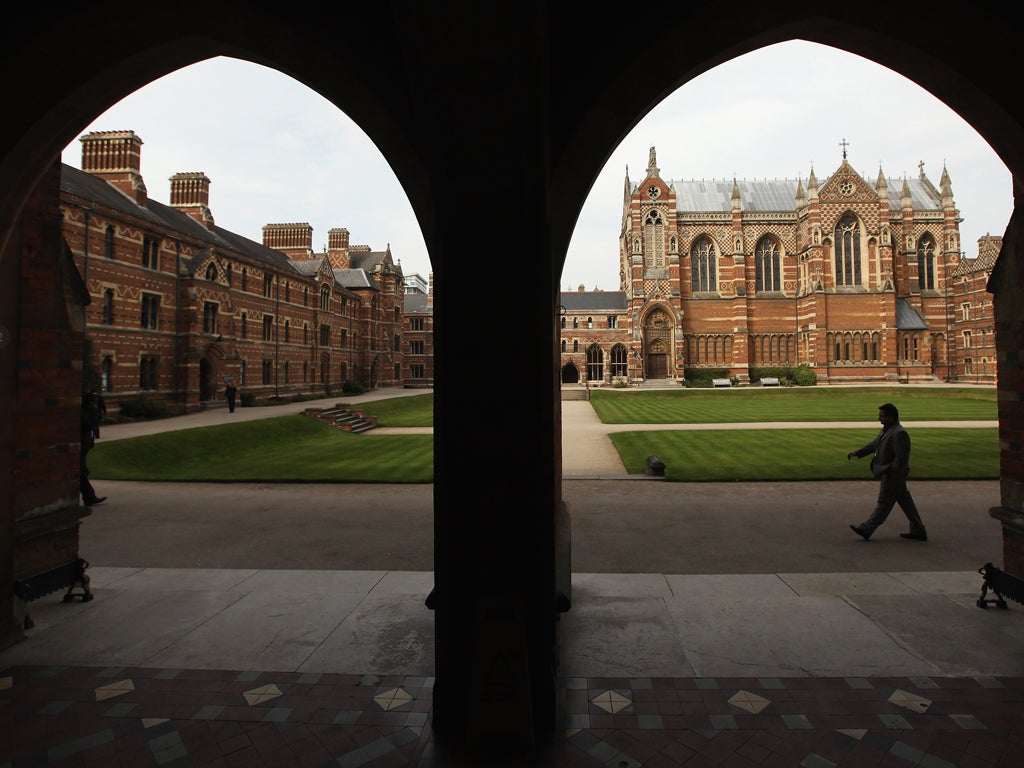Whether you call it #Unishambles or not, education is becoming available only to those who can afford it
As The Independent reported this week, there is a giant black hole in university funding. The people who will pay for it are the undergraduates of the future

University should be the best years of a person's life. You are as likely to discover more about yourself than the subject you are studying. Moving away from home teaches you discipline and life management skills that you wouldn't develop under the watchful eyes of your parents.
Many youngsters may not get this opportunity. They have to choose between racking up debts to go to university and gain the experience many of their predecessors took for granted or do something else. But despite its cost, a good education is priceless in and of itself.
Moral philosophers since the ancient Greeks have emphasised that education isn't just a means towards intelligence, but also towards happiness. They do not simply mean that well educated people are happier, but that intelligence and reason are tools that help us to be happy. It would be a great shame if people were priced out of the education through the political mistakes.
Thousands of students and lecturers took to the streets in 2010 to protest the coalition placing the burden of education on the shoulders of students via the trebling of tuition fees to £9,000 a year.
Black Hole
But the recent Higher Education Policy Institute (HEPI) report reveals that it isn't just students who are picking up the tab. They estimate that there could be a £1bn “black hole” in the government's figures, stemming from two “highly uncertain and optimistic assumptions”. The first is that the average graduate will be earning £75,000 30 years after they graduate and the second is that the average fee charged by universities would be £7,500 a year.
Both assumptions would prima facie appear hopeful at best. Monster.co.uk, the jobseekers website, suggests that the average salary for people with 20 or more years experience is £39,000, just over half what the government assume the average graduate would be paid with the same level of experience.
After the Comprehensive Spending Review and Browne's review of university funding, universities warned that the cuts to teaching grants would result in every university pushing their fees as high possible. In an open letter the Vice Chancellor of Oxford said that under the old system they still had to make up a deficit of £8,000 per student each year. While not many institutions spend as much per pupil as Oxford, it seems obvious that given the opportunity, universities would try to raise them as high as possible.
The whole exercise in getting students and universities to shoulder more of the burden was to reduce the amount of public funds being channelled into education, yet it seems that this will be unsuccessful. Not only is there the worry that the government now has to fund higher loans, but the massive increase in tuition fees has pushed the Consumer Price Index up 0.2 percentage points, meaning a real term increase in public sector pensions and benefits.
So it seems the attempt to save money has resulted in more people having to pay more money!
Future losses
Universities have to fill a black hole in their finances. The government, who estimated they would save £1.3bn, is going to have to pay anything between £420m and £1.14bn in additional benefits and pensions.
But the real losers are the future students. Those who have played no part in the financial crisis or in the political game that is going on in this country. Many will be denied the opportunity to go to university because those who got it for free have decided that others should pay for their mistakes and the mistakes of their parents. Debts of £27,000 are no laughing matter, and it is worrying that an education, something Labour tried for so long to open up to everyone, may now revert to being the reserved purely for those who can afford it.
This would be sad, because the heavyweights of moral philosophy suggest that education is the route not just to being a good person and citizen, but to being a happy one too. It would be a shame if this Unishambles results in happiness, as well as education, being only available to those who can afford it.
Join our commenting forum
Join thought-provoking conversations, follow other Independent readers and see their replies
Comments
Bookmark popover
Removed from bookmarks